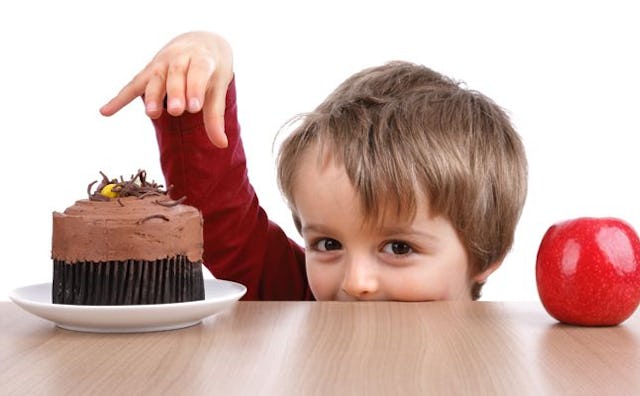ADHD Diets for Kids: Do they actually work?

Your child has the attention span of a flea, is constantly bouncing off the walls, and you get calls form their school regularly. Sound familiar?
Well, you need to get them diagnosed, but your child may have Attention Deficit Hyperactivity Disorder (ADHD). There is a lot of debate about whether to treat children who have ADHD with medications (stimulants) at an early age, or if their symptoms can be treated by changing their diet alone. There are some benefits to treating children with ADHD medications, but there are quite obviously some health detriments, especially over the long term as well. But is merely changing a child’s diet enough to help and improve their hyperactivity and attention issues?
ADHD Medications:
Most Medications for ADHD (Ritalin, Concerta, Adderall, etc.) are stimulant medications that actually work to calm down people with ADHD by slowing the brain signal transmissions by altering the dopamine and norepinephrine chemicals in the brain (those are your “feel good” and “energy” brain chemicals). It seems counterintuitive to give someone who is hyperactive a stimulant, but it has an opposite effect on people with ADHD because of how their brain chemicals work. Some of these medications are short acting (a few hours) and some are longer acting (8-12 hours), which seem like an easy fix for children during school hours, to help them stay focused and calm, however, as with any medication, there are side effects that can have negative impacts. These medications should not be given to anyone with anxiety as they can actually increase the feeling of anxiety, increase blood pressure, cause headaches, sick stomach, significant weight loss, tics, and there has also been a slower progression in growth noted in children who take stimulants. Plus, any stimulant medication has a higher risk of dependency and abuse over time, so you do need to watch your children as they get older, usually middle school age and older, to ensure they are taking their medications properly and no t ‘sharing’ with friends. These medications can be helpful when used properly.
There are some non-stimulant medications for ADHD, such as Strattera, which is an anti-depressant like drug that assists with anxiety and ADHD symptoms. Most side effects from the drug, such as nausea, sick stomach, and drowsiness go away after the first month, but there are a few more serious risks that can occur. The two most serious side effects are liver dysfunction, so children taking this drug need to have relatively frequent blood draws (which is not fun for anyone, never mind trying to get your kid to get excited for this monthly) and there is also a black box warning about increased risk of suicidal thoughts in children and teens, which is a really scary thought, especially because some children are unable to verbalize these feelings, so you really need to watch your child closely for any changes in behavior.
The side effects from the medications make people wanting to rely strictly on diet changes a little more understandable!
ADHD Diet:
The suggested diets for children with ADHD emphasize a diet high in protein, complex carbohydrates, and Omega-3 fatty acids. The diet limits sugars and processed foods, limiting (or eliminating) foods with preservatives and dyes. The theory is that as proteins not only help to create neurotransmitters in the brain, they also take your body longer to process and breakdown, so unlike foods high in sugar content, they maintain a regular blood sugar level so that it is easier for children to manage their symptoms of AHDH.
Essentially, if you feed your children simple carbohydrates (think pop tarts) for breakfast, it is just like feeding them candy, so they will be on a sugar high and low throughout the day, and it can be hard for them to control their behavior and pay attention in school, which is kind of common sense, right? No child should eat straight sugar all the time! Feed them foods with proteins and complex carbohydrates (think an egg and whole grain toast) and snacks of veggies, fruit, and protein from nuts or cheeses which will not only satiate the, but help their neurotransmitters to not over stimulate and keep their blood sugar relatively level (preventing the highs and lows.)
It’s not too tough to meet the needs of the “ADHD diet” and if it helps to prevent the symptoms of ADHD in your child, it is worth the extra time meal planning every week, right? The diet “changes” seem like a regular healthy diet for an adult or a child: most of your diet should subsist of complex carbohydrates and proteins, be filled with whole grains and fruits and veggies. A child (or an adult, for that matter) who’s diet is filled with sugar and empty calories will obviously be more hyperactive and have trouble paying attention, because on top of being a normal child who is constantly learning and easily distracted, they are basically on a sugar high (followed by the dreaded sugar crash) all of the time. Try eating more along these lines as a family, and see if there is improvement in your child and their behavior, and if they still are hyperactive, explore other options for treatment with your child’s healthcare practitioner to see what meets the needs of your child….and YOU!
This article was originally published on